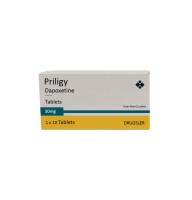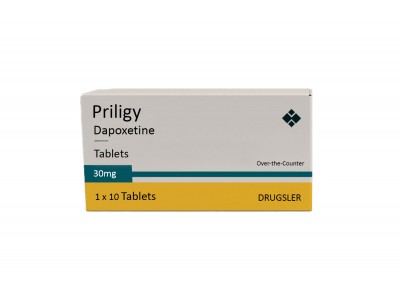Priligy, also known by its generic name dapoxetine, is a medication primarily used to treat premature ejaculation (PE) in men. It is a selective serotonin reuptake inhibitor (SSRI) that works by increasing the levels of serotonin in the nervous system, which can help to delay ejaculation and improve control over the timing of ejaculation. While Priligy is specifically approved for the treatment of PE and has shown effectiveness in clinical trials, it is not used to treat erectile dysfunction (ED). ED is typically treated with medications such as sildenafil (Viagra), tadalafil (Cialis), and vardenafil (Levitra), which work by increasing blood flow to the penis to help achieve and maintain an erection.
Priligy is generally well-tolerated, but like all medications, it can have side effects. Common side effects include nausea, dizziness, headache, and diarrhea. It is important for individuals considering Priligy to consult with their healthcare provider to ensure it is appropriate for their condition and to discuss any potential interactions with other medications they may be taking.
There are men who use Priligy to manage PE, finding it effective in improving their sexual performance and satisfaction. However, it should only be used under medical supervision. It is not suitable for everyone, particularly those with certain medical conditions or those taking medications that can interact adversely with dapoxetine. For those struggling with ED, it is important to seek out medications specifically designed for that condition and to consult with a healthcare provider for a proper diagnosis and treatment plan.
In summary, Priligy or dapoxetine is used by some men to treat premature ejaculation but not erectile dysfunction. Effective management of sexual health concerns typically requires tailored treatment based on an individual's specific condition and medical history.

